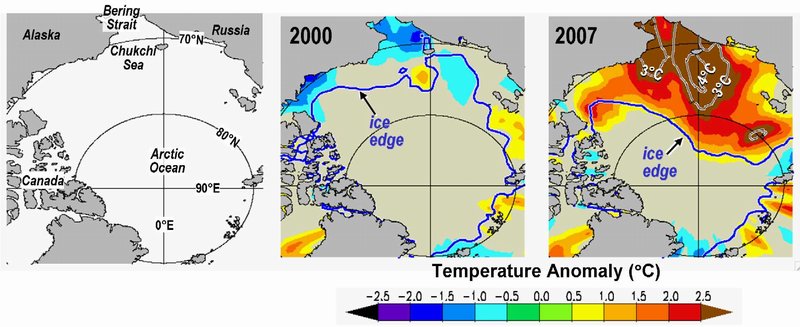
We’re hearing about the record-breaking iceless summer of 2007 in the Arctic, worse even than it first seemed. Now we’re learning that these ice-free waters have deprived the Arctic of much of its natural insulation, enabling sea surface temperatures to rise 5-degrees C above average in one place this year—a high never before observed, says Michael Steele, oceanographer with the University of Washington’s Applied Physics Laboratory.
Superwarming surface waters affect how thick ice grows back in the winter, as well as its ability to withstand melting the next summer. Already this year the winter freeze-up in some areas is two months later than usual, boding poorly for next summer. The ocean warming might also be contributing to changes on land, including novel plant growth in the coastal Arctic tundra.
Steele is lead author of “Arctic Ocean surface warming trends over the past 100 years,” accepted for publication in the American Geophysical Union’s Geophysical Research Letters.
Julia Whitty is Mother Jones’ environmental correspondent. You can read from her new book, The Fragile Edge, and other writings, here.







